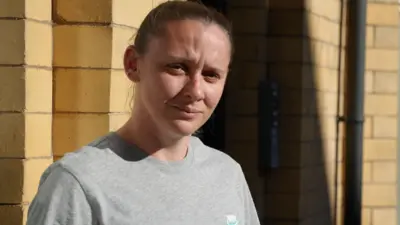We've updated our Privacy and Cookies Policy
We've made some important changes to our Privacy and Cookies Policy and we want you to know what this means for you and your data.
Bird flu: Measures to prevent spread in NI announced
Image source, Getty Images
- Author, Louise Cullen
- Role, ┤¾¤¾┤½├¢ NI Agriculture & Environment Correspondent
More measures to prevent the spread of bird flu in Northern Ireland have been announced by the agriculture minister.
From midday, Northern Ireland is once again under Avian Influenza Prevention Zone restrictions.
Similar restrictions have been in place in the Republic of Ireland for a month and will also be introduced in Great Britain from today.
In the past year the disease has been found in captive birds and poultry at more than 180 holdings across the UK.
Detections in wild birds have continued throughout the summer.
Most recently in Northern Ireland, samples from captive birds at the Castle Espie Wildfowl and Wetlands Centre in County Down were found to have the Highly Pathogenic Avian Influenza strain, H5N1.
A 3km Temporary Control Zone was established, which became a Captive Bird Monitoring Zone at the weekend.
That was followed by the announcement of the Protection Zone from midday, 17th October 2022.
At this time of year, migratory wild birds are beginning to return, bringing with them a heightened risk of the disease.
The introduction of the Protection Zone means all bird owners in Northern Ireland must follow strict biosecurity measures that include preventing wild birds having access to the same food and water as poultry or captive birds, and mandatory rules on cleansing and disinfection.
While bird gatherings such as shows are not prohibited and it is not yet a requirement for poultry to be housed, Northern Ireland's Chief Veterinary Officer Robert Huey said this would be kept under constant review.
"I would encourage all flock keepers, even if you keep just one bird, to improve biosecurity in order to prevent an incursion of the disease into our poultry flock," Dr Huey said.
"If avian influenza were to enter our Northern Ireland flock, it would have a significant and devastating impact on our poultry industry, international trade and the wider economy."
Beginning in October 2021, this has been described as the worst ever outbreak of bird flu in these islands, with hundreds of thousands of birds culled.
While the risk to human health is low, the public is advised not to handle sick or dead birds.
Top Stories
More to explore
Most read
Content is not available








